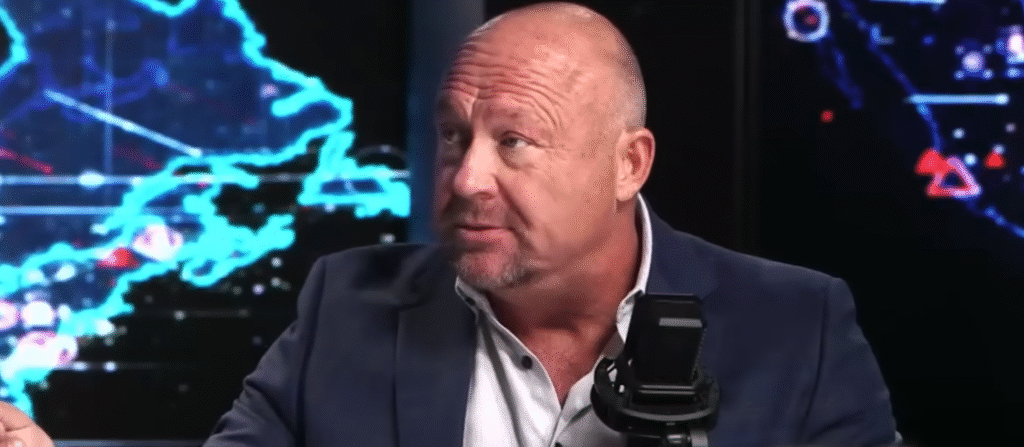Few media personalities ever cross the moral and legal line when they say that the Sandy Hook Elementary School shooting was staged, that the distraught parents were actors, and that the tragedy was made up. Families who had already experienced unimaginable loss suffered severe emotional and psychological harm as a result of those remarks, which were repeated over time. They also made victims into targets by igniting his followers’ harassment campaigns.
The lawsuits that followed focused on accountability as much as damages. Jones was found guilty of defamation and purposeful infliction of emotional distress by juries in Connecticut and Texas. The combined verdicts, which came to more than $1.4 billion, show how seriously the courts took his careless actions. Jones, however, has resisted payment by claiming insolvency on multiple occasions while still broadcasting and making money off of his platform. His story now revolves around his refusal to accept responsibility, just as much as the lies that led to it.
His problems have gotten worse lately. Christopher Murray, the U.S. Bankruptcy Trustee, charged Jones with using fraudulent transfers to conceal millions. According to the lawsuits, he transferred assets into his father’s name, gave his ex-wife more than a million dollars, and put expensive vehicles and real estate in family trusts. “A flurry of transactions bearing the classic hallmarks of fraudulent intent” is how Murray characterized these actions. Under the guise of reimbursement or repayment, each transfer seemed intended to protect Jones’s fortune from creditors, particularly the Sandy Hook families who are still awaiting compensation.
Personal and Professional Information
| Category | Information |
|---|---|
| Full Name | Alexander Emric Jones |
| Profession | Radio Host, Political Commentator, and Conspiracy Theorist |
| Known For | Founding Infowars, promoting conspiracy theories including Sandy Hook denial |
| Birthdate | February 11, 1974 |
| Place of Birth | Dallas, Texas, USA |
| Affiliation | InfoWars and Free Speech Systems |
| Lawsuit | Defamation and asset concealment cases related to Sandy Hook families |
| Judgment Amount | $1.4 billion (Connecticut) + $50 million (Texas) |
| Legal Status | Under bankruptcy review, facing multiple civil suits |
| Reference | BBC News – Alex Jones Case |

This avoidance pattern exemplifies a particularly harmful cycle: false information, denial, and deceit. Reports of continuous cash transfers and extravagant spending stand in stark contrast to Jones’s assertion that he is financially “on empty.” Legal experts find this contradiction to be remarkably similar to strategies employed by other well-known defendants who try to maintain their influence while pretending to be bankrupt.
In October 2025, the U.S. Supreme Court essentially closed the biggest defamation case in American history when it refused to consider his appeal. Jones had maintained that his broadcasts were political speech rather than intentional defamation, and that his lies were therefore protected by the First Amendment. The Court’s silence on the subject was very telling. It upheld the Connecticut decision and confirmed that intentional harm is not covered by free speech. The decision was particularly explicit in reaffirming that speech is no longer protected when it results in quantifiable harm to actual people.
There are wider ramifications for media accountability from this legal reckoning. Jones combined anti-establishment rhetoric with sensationalism to turn Infowars into a lucrative empire. Millions were drawn in by his remarkably successful formula, which combined entertainment, fear, and rebellion. However, the same strategies that helped him gain more followers also contributed to his demise. Outrage can become a liability as much as a business model once it is commodified, as demonstrated by the Sandy Hook case.
Jones’s story, according to observers, reflects a developing cultural conundrum: the emergence of online provocateurs who profit from division. Jones turned conspiracy into business by using performance as persuasion, much like other individuals who conflate influence with recklessness. His story is especially illuminating because it demonstrates how easily emotional storytelling can degenerate into destruction in the real world when left unchecked by reality.
The legal actions against him are not one-off occurrences; rather, they are a part of a broader cultural movement that calls for media figures to be more transparent. As the effects of misinformation become more and more obvious, the public’s tolerance for “alternative facts” has drastically decreased. Jones’s case is seen by many as a turning point, when moral outrage was finally turned into enforceable justice by the courts.
Jones still broadcasts today while portraying himself as a censorship victim. As a champion of free speech under siege, he maintains that his punishment is politically motivated. However, his story becomes more and more flimsy. The tenacity of the Sandy Hook families provides a counterpoint, proving that truth-based perseverance can triumph over noise.
Practical concerns about how justice operates when defendants profit from fame are also brought up by the legal proceedings against Jones. Infowars is still profitable, albeit less so, and its continued existence highlights how difficult it is to hold spectacle-based organizations accountable. The bankruptcy court’s choice to look into asset concealment could serve as a template for similar cases in the future involving digital publishers or influencers who conflate personal and business finances.

